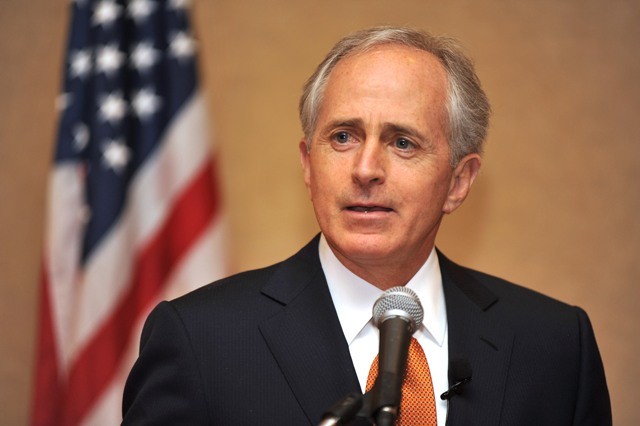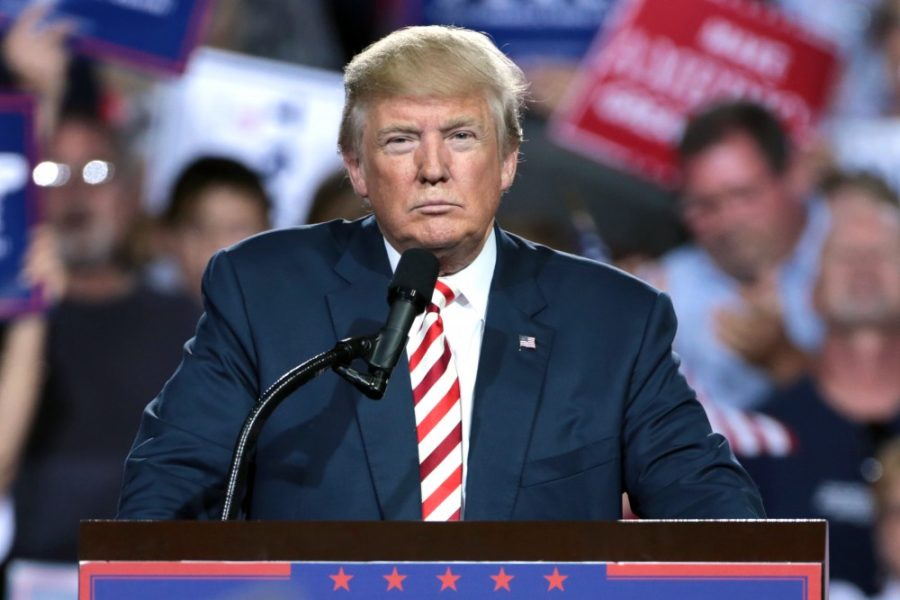The Republican party of today is an entirely different beast than ever before. Simultaneously ascendant and on the verge of civil war, GOP leaders have not been in such unexplored waters for decades. It’s easy to point toward the election of Donald Trump and the ensuing rallying of formerly “never-Trumpers” back into the fold for the sake of political cohesion, but the dedication to Trump’s personal hand in the Houses of Congress is reaching new heights.
Presidents are known to “crack the whip” once they become inaugurated in order to put every branch of government on the same page of policy goals and what is to be put on the to-do list. This is not unique to President Trump, and in fact, back in 2001, this policy of party cohesion under President George W. Bush sparked the desertion of Jim Jeffords, a man who represented the slowly dying moderate wing of the Republican party. But with the announcement of Jeff Flake’s and Bob Corker’s semi-forced retirements and the continual personal attacks on GOP party establishment members, Trump’s approach is more blunt, heavy handed and public.

Back in 2015, when President Trump was still only candidate Trump, he made a sharp condemnation of John McCain, who had avoided endorsing him or his policies in the primary. Trump took shots at his wartime service and experience as a prisoner of war for five and a half years saying, “He’s not a war hero. He was a war hero because he was captured. I like people who weren’t captured.” The comment drew the intense ire of fellow senators and congressmen, but seemed to do nothing to stop the controversy-laden Trump train heading to the White House.
RELATED: US Pulls out of UNESCO
Even further, once Trump was inaugurated the open disagreement in the ranks boiled over, with Senator Jeff Flake (R- Arizona) writing and publishing an article in Politico calling the election of Trump part of a Republican “Faustian bargain.” He went even further and announced that his election was not worth the repudiation of traditional Republican convictions. Senator Bob Corker (R-Tennessee) said that Trump was exhibiting the same “erratic” traits as Kim Jong Un, in response to his hawkish and half-structured foreign policy in North Korea.
The response was immediate, with Trump calling Bob Corker “Liddle’ Bob Corker” and Trump allies jumping down Flake’s throat almost immediately. Most interesting was senatorial candidate Kelli Ward’s denouncement of Flake’s decision not to support Trump in the primaries as “treacherous.”
It’s this firebrand style of repudiating all Republicans who refuse to toe the party line that is the most destructive for the long term health of the party. While both Flake and Corker may represent specifically anti-Trump leadership in the Caucus, their ability to listen to Republicans who hold similar views is extremely valuable to the health of a national party made of different groups of people.

When Jeffords left the Republican party in 2001, he said, “given the changing nature of the national party, it has become a struggle for our leaders to deal with me and for me to deal with them.” This is a sign of a changing time in Washington, as conservative Republicans elected in 1996 during the Republican Revolution were solidifying their total control over the party and its ambitions.
But while party unity can accomplish great things and pass laws desperately needed without unnecessary changes to appease different wings of each ideological tent, a monolithic party is an unresponsive one. Republicans and Democrats are capable of answering the pleas of Americans exactly because a Democrat in Arizona would be very different from one in New York; each has the opinions and experiences of their respective constituents.
Blue Dog Democrats, moderate-to-conservative Democrats who agree with general left-of center policies but buck orthodox environmental policy, tax reform, immigration or gun rights, attract voters who would never be caught dead checking the box next to Nancy Pelosi on election day. Once numbering more than 50 members, the Blue Dog Caucus is now only at 18 members. They watch in distaste at the growing influence of the Bernie Sanders wing of the party, much like many Americans who were attracted to the anti-establishment tenor of Trump but who may find his more conservative policies not in their interest.
Just as Democrats attempting to unify Democrats around a left-progressive banner following 2008 left their moderate and right wings out in the cold, Trump’s attempt to force out all non-compliant members of his party threatens the ability of the Republicans to adapt once another political shift comes. With more holdouts from other wings and ideological foundations, political groups can rally faster in the face of electoral defeat and approach crises with a more broad and less heavy-handed focus.
RELATED: Sports, the final Trump frontier
While Trump may be the party leader for now, he won’t always be. And just as any attempt by Barack Obama to solidify his ideology as the backbone of the Democratic Party doomed any unpopular incumbent during the midterm elections, President Trump might be surprised to find one day that his brand no longer carries the same weight in Republican voters, and that his party might be dangerously unprepared once that time comes.
Alec Scott is a Sophomore studying Political Science and volunteered in the 2014 Ron Barber Congressional Campaign.
Follow The Daily Wildcat on Twitter









